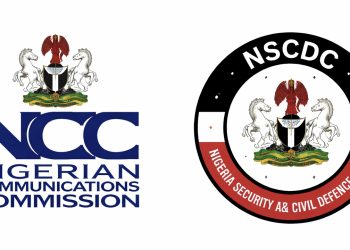…urges state governments to support the reintegration process
By Nkechi Eze
The Nigerian military has been engaged in a protracted campaign against Boko Haram insurgents, who have waged a brutal war against the government and civilians in the northeastern part of the country since 2009.
As part of efforts to end the insurgency, the Nigerian government established Operation Safe Corridor (OSC), an initiative aimed at facilitating the surrender, de-radicalization, rehabilitation, and reintegration of former Boko Haram fighters.
The program is a multidimensional approach that involves psychological, social, and economic support to help former terrorists abandon their extremist ideologies and reintegrate into their communities.
In a significant development, the Chief of Defence Staff, Gen. Christopher Musa Gwabin, has announced that 789 ex-terrorists are currently undergoing de-radicalization, rehabilitation and reintegration under Operation Safe Corridor initiative.

Speaking at the event of the Operation Safe Corridor stakeholders meeting held on Tuesday 18th February in Abuja, Gen. Musa who was represented by Chief of Defence Policy and Plans, AVM Sayo Olatunde, disclosed the information.
According to the CDS, the initiative was born out of a significant breakthrough: the mass surrender of Boko Haram and Islamic State of West African Province members. This milestone was achieved through meticulous planning and collaboration among all stakeholders involved, ultimately paving the way for the launch of this program.

“More than 120,000 insurgents and their families have surrendered since the inception of the programme, and the 789 ex-combatants undergoing re-radicalization, rehabilitation and re-integration Programe under the initiative and are expected to graduate within the year.” he stated.
The Chief of Defence Staff (CDS) further emphasized that the meeting aimed to create a plan for reintegrating the first batch of 391 clients back into their home states, as part of a larger effort to de-radicalize former extremists.
“Today’s meeting, therefore, centers on coming up with modalities to ensure the proper re-integration of the first of two batches consisting of 321 clients, into their states.” He said.
While acknowledging the diverse expertise of committee members present at the event, the CDS affirmed that he is hopeful that all issues pertaining to the successful reintegration of this clients back into the society, will be exhaustively discussed with pragmatic solutions so far.
Musa commended the individuals involved in the program for their tireless efforts and commitment to national security, recognizing their hard work and dedication while also underscoring the need for continued progress towards their objectives.
The CDS also expressed his appreciation to the individuals involved in the program, acknowledging their diligent work and commitment to national security, while also highlighting the ongoing challenges that lies ahead.

“The successes recorded so far are a testament to your resilience and commitment to duty. In spite of the successes, we must remember that there is a lot more to be done, hence the importance of this stakeholders meeting.” he said.

While urging state governments to support the reintegration process, ensuring that local and traditional authorities collaborate to monitor the progress of the reintegrated ex-combatants Gen. Musa expressed optimism that working closely with local authorities, the state can deploy security apparatus at its disposal to effectively track and monitor the progress of the re-integrated ex-combatants.
Gen. Musa further emphasized that all stakeholders must be actively involved in the re-integration process. Noting that the importance of the meeting is to ensure lasting peace and security in Nigeria.
Brig. Gen. Yusuf Ali, Commander, Operation Safe Corridor, in his remarks explained that the Operation Safe Corridor is a multi-agency humanitarian scheme that operates in line with Nigeria’s constitution as well as the international humanitarian and human right laws.
According to Brig. Gen. Ali, the operation consists of personnel drawn from 17 services, ministries, departments and agencies. This unique composition presents a whole state and government approach towards tackling insurgency in the Northeast. Further more, in order to foster sect synergy and improve the capacity of personally in tandem with global best practices, Operation safe corridor in conjunction with its implementation partner conducts regular training in the form of seminars, workshops and strategic retreats.
This perhaps explains why the activities of Operation Safe corridor has continued to attract attention of local and international researchers in the field of re-radicalization, reintegration and rehabilitation,
“Since the commencement of the programme in 2016, operation safe corridor has successfully processed 2,190 clients, comprising 2,163 Nigerians, 27 foreign nationals from Cameroon, Chad, and Niger. All the foreign clients were transferred to their respective national authorities for re-integration” Ali said.
Ali further highlighted that Between July and November 2024, a total of 825 clients were transferred to the DRR Camp to begin their rehabilitation process. Amongst them were 14 foreigners from Burkina Faso, Cameroon, Chad, and Niger. Additionally, 22 clients were sent to the Federal Neuro-Psychiatric Hospital in Maiduguri for further evaluation and treatment.
Ali outlined that the expected outcome of the meeting is focused on addressing stakeholders on Operation Safe Corridor and the de-radicalization, rehabilitation and reintegration program. He noted specifically that state authorities, ministry, departments and agencies will understand their roles in the client transfer and reintegration process.
According to him, the directive of the Chief of Defence Staff, who doubles as the National Chairman of Operation Safe Corridor National Steering Committee, is to work out modalities for the smooth transfer of the clients presently in the camp to their national and state authorities for reintegration after graduation in March 2025.
Speaking on outcomes expected of the meeting, Ali stated that all stakeholders will be fully addressed with activities of Operation Safe corridor and de-radicalization rehabilitation and reintegration program, in particular. The state authorities and ministry departments and agency would know in specific terms the roles they will play in the transfer as well as the reintegration process of the clients. They will also be able to identify, and recommend the specific terms, affordable resettlement packages for the clients, and assign responsibilities to relevant ministries, departments and agencies to provide their own paths. Also it will enable us to determine the mode of community sensitization, camp visitation and community service programs that would need to be embarked upon. Furthermore, it will enable us to ratify recognition dates and initiate arrangement for the ceremony.
Highlight of the meeting was the presentation of souvenirs to guests.
Some of the dignitaries present at the meeting includes various state governments, services, MDAs, Operation Safe Corridor implementation partners, office of the NSA, representative from the federal ministry of justice, federal ministry of women affairs and disaster management, Nigeria Police Force, Department of health services, National Intelligence Agency, Nigerian correctional services, Nigeria security and civil defence corps, National orientation agency, National emergency management agency, National Drug Law Enforcement Agency, National Directorate of Employment, North East Development Commission, National Identity Management Commission, Operation Safe Corridor implementation partners UNICEF, IOM, CBD and operation safe corridor advisory committee members.












